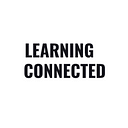Soronko Academy: Coding for Sustainability
Regina Honu is the CEO of Soronko Solutions, a technology company based in Ghana. She successfully runs Soronko Academy — the first coding and human centered design school in West Africa for young people and adults. The academy is part of Soronko Foundation which initially trained only girls and women, and later expanded to support boys and men in learning how to code. The academy is inclusive and supports learners with special educational needs and disabilities. Her entrepreneurial success story was published in Lean in for Graduates by Sheryl Sandberg, and on the Impatient Optimist blog by The Bill and Melinda Gates Foundation. Here is her story to help inspire your own educational entrepreneurship.
Originally, Soronko Academy was started to sustain a programme that Regina had started called Techniques Girls. It was a mentorship programme where girls aged from 6–18 were coached to lead and innovate by learning to code. Techniques Girls faced some key challenges that needed to be addressed. The programme took place at different locations and would engage with different groups of young women for a limited period of time. Impact assessments revealed that the programme participants struggled to build on what they had learned previously as they did not have open access to computers.“When a community doesn’t understand what an empowered girl looks like, if you empower her and leave her without support they bring her back to a worse state,” says Regina.
Regina found a permanent space for the programme to take place. The girls were able to have unlimited access to the devices. Facilitators also had a place where they could discuss and design a personalised curriculum for the learners. Regina received requests for the programme to be made available to boys and learners with special educational needs and disabilities. The new location made it possible to deliver tailored projects to support the wider community.
Soronko Academy is also involved in making coding accessible to learners in public schools in Western Africa. They are currently piloting a coding curriculum in a group of schools in Kumasi. They are monitoring the impact that learning to code can have on a learner as they transition from primary to secondary school. The school’s activities encourage participants to develop and use their skills to benefit the community. For example, some students have volunteered their services to build websites for local hospitals. “That demonstrates the impact learning coding can have on our learners, and how they can apply their new knowledge to give back to the community and solve local problems,” says Regina.
Regina has great plans for Soronko Academy. The academy is partnering with existing organisations and setting up centres across the Western African region to deliver more coding and stem related activities. It is her goal to expand the academy’s activities to vulnerable rural and and underserved communities to ensure that they are not left behind in the digital revolution.
If you want to find out more about the Soronko Academy, contact them on info@soronkoacademy.com
